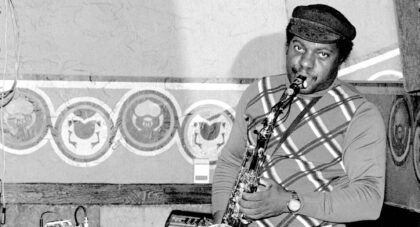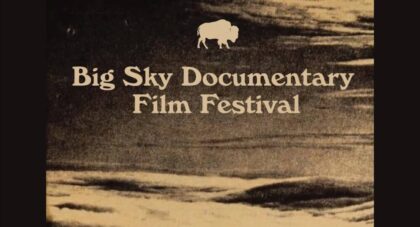With its pedal steel leads, Gram-and-Emmylou-style harmonies, and social realist imagery, Mark Jones’ Snowblind Traveler hitchhikes down some of the same highways as the LA burnout LPs of the early 1970s and Bruce Springsteen’s first three albums. Salem, VA-based singer-songwriter-producer Jones might not have been able to afford top LA session talent. Nor did he enjoy the backing of music industry machers like Mike Appel, Jon Landau, or Clive Davis. Yet he nevertheless succeeded in creating an appealingly ragged collection of songs that sounds as if they could have been recorded 9 years earlier and 2,460 miles further west, perhaps during one of Springsteen’s pre-Columbian trips to the west coast.
Jones’ stripped-down arrangements have more frayed edges than a thrashed Levis Type III. Still, not one of Snowblind Traveler’s eleven compositions would have seemed out of place on an early ‘70s Elektra or Asylum release. Jones’ lyrics, however, offered a blunt rebuttal to canyon rock’s pastoral yearnings. At the turn of that decade LA burnouts like John Philips and Gene Clark had temporarily traded habits for horses and groupies for domestic bliss, heading back to the land or out to the country in pursuit of solitude, authenticity, and redemption. The music that emerged from these rural retreats narrated their escapes from the sinful city and extolled the simple virtues of their new lives in their bespoke timber cabins or make-believe ranches.
Nearly a decade after the rural rock exodus Jones appropriated its sonic palette to present a series of stark, documentary-style portraits of the sorts of places that the LA refugees had dreamed of retiring to. This wasn’t the American south that Delaney Bramlett had once reminisced about. Indeed, there is not a cotton field, ray of early morning sunshine, or sprinkle-faced lady to be found on Jones’ album. It was a landscape whose defining features were the scars left behind by the economic and environmental catastrophes of the mid-1970s. Like Springsteen, Jones confronted his listeners with arresting snapshots of abandoned storefronts, soul-snuffing factories, and working-class zeroes plotting their escapes from dying small towns. In doing so he affirmed the dignity of these places and people, replacing small-town caricatures with three-dimensional renderings of life in flyover America.
Snowblind Traveler is a collection of self-contained yet thematically-linked first-person accounts of small-town decay, confinement, longing, escape, failure, and survival. Its nameless characters describe their hometowns as “lion traps” and their jobs as “bad dreams.” In “What You Get” a blue-collar worker with a few in him explains the perks of his gig at the local lumber yard to the anempethetic accompaniment of Mike Calaway’s peppy pedal steel licks: “Though the hours are tough to take, the work’s too hard.” He goes on to recount a friend’s barstool confession: “Said I need to spread these wings and fly, leave this world behind.” Other characters likewise share half-baked fantasies of one-way tickets that will take them as far away as possible. Save for passing allusions to “southwest cities where the sun is guaranteed” or “the highlands,” destinations are rarely mentioned. The insinuation is that literally anywhere would be better than Virginia or the power plant or Harrisburg, where, according to the song of that title, “things that can’t be seen control you.”
Only the good shit. Aquarium Drunkard is powered by its patrons. Keep the servers humming and help us continue doing it by pledging your support.
To continue reading, become a member or log in.


